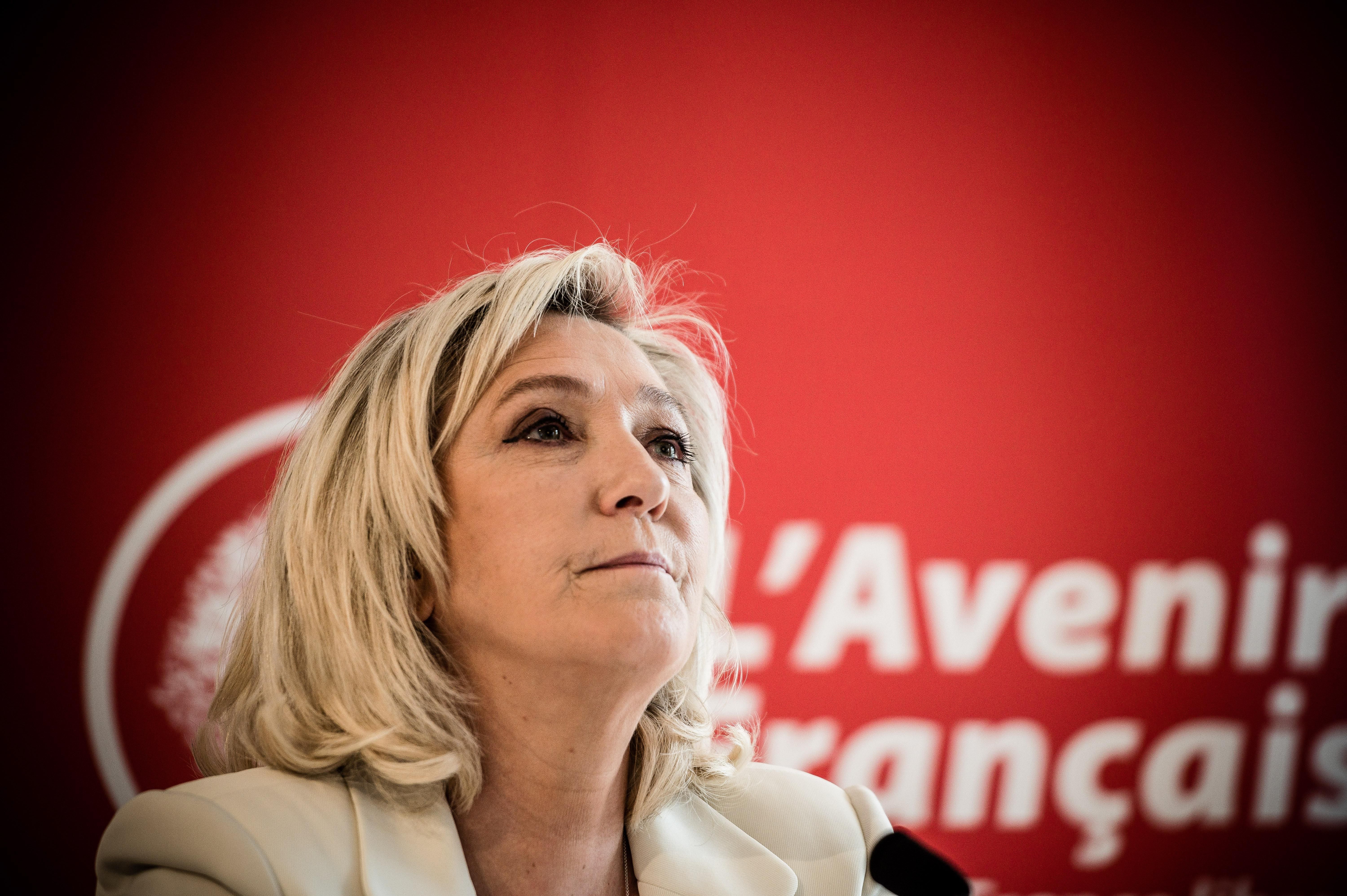What We're Watching: Le Pen on the rise, big leak in Iran, bad omen for Japan's LDP
Why is Marine Le Pen gaining momentum in France? "Each time France is hit by terrorism, the extreme right benefits," one French journalist told the Times Friday after an immigrant from Tunisia, who had been in the country illegally for a decade, fatally stabbed a French policewoman on the outskirts of Paris. After the attack, Marine Le Pen, leader of the far-right National Rally party, called for illegal immigrants to be "expelled" and for the "eradication of Islamism." As France continues to suffer from a series of Islamist terror attacks, polls show that Le Pen's hardline views on immigration and anti-Muslim sentiment are resonating with many mainstream voters. That's in part because France has suffered more terror attacks in recent years than any other Western country. Le Pen's electoral prospects are also getting help from President Macron's dismal performance: his approval rating has plummeted (he now has a 60 percent disapproval rating) because of perceptions that his government has botched the pandemic response and the vaccine rollout. Trying to appeal to the center-right before the attack, Macron vowed to uphold "the right to a peaceful life," and after Friday's killing said his government would get tough on "Islamist terrorism." But the opposition said the president's words are tokenistic and don't go nearly far enough. With just a year until the next presidential election, Le Pen is seizing the moment while Macron is mired in a deepening political crisis.
Leaked audio in Iran: Who Done It? Just weeks after the start of Vienna-based talks that aim to revive the 2015 Iran nuclear deal, Tehran finds itself rocked by a political scandal after Foreign Minister Mohammad Javad Zarif was caught on tape dissing the country's hardline political elite. In the recording, Zarif, a fierce proponent of the nuclear deal, accuses Iran's powerful Islamic Revolutionary Guards Corps (IRGC) of attempting to scuttle the nuclear pact, and accuses popular General Qassim Suleimani, who was killed in a US attack last year, of colluding with Russia to "demolish" efforts at a rapprochement with the West. The timing of the leaked audio is particularly curious given that Iran's presidential election is just six weeks from now. So who leaked? Analysts say it was probably political hardliners aligned with Supreme Leader Ali Khamenei, who released it as part of a plan to embarrass and discredit Zarif, perhaps to stop him from running for president himself. (In Iran, deriding the IRGC, a military force established during the revolution that plays a major role overseeing Tehran's foreign policy, is not a popular look.) We're watching to see if there's any more political fallout from the tapes, and how they'll affect the vote.
Japan's PM suffers three ominous losses: On Sunday, Japan held special elections to fill three parliamentary seats vacated over the past year. The ruling Liberal Democratic Party lost all of them to the main opposition Constitutional Democratic Party, suggesting that Prime Minister Yoshihide Suga is in rough shape politically as general elections approach this fall. Suga took over the top job last August after the long-serving Shinzo Abe resigned due to poor health. While Suga was initially popular, the economic impact of the COVID pandemic and a sluggish vaccine rollout have hurt him. Importantly, a series of recent graft scandals also seem to have sapped his support: two of the three elections held over the weekend were for seats vacated by LDP politicians implicated in bribery scandals. Suga must call general elections before mid-October, which are sure to be a big test for the LDP at a time when the people of Japan are increasingly frustrated and impatient with their leaders.
